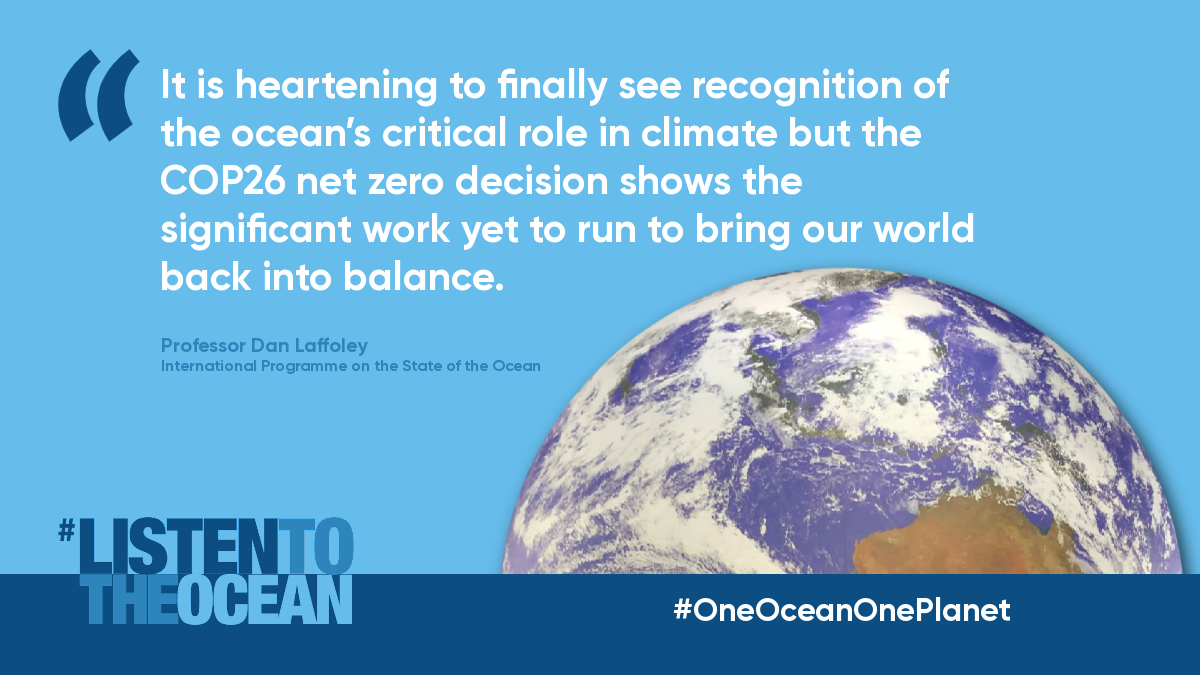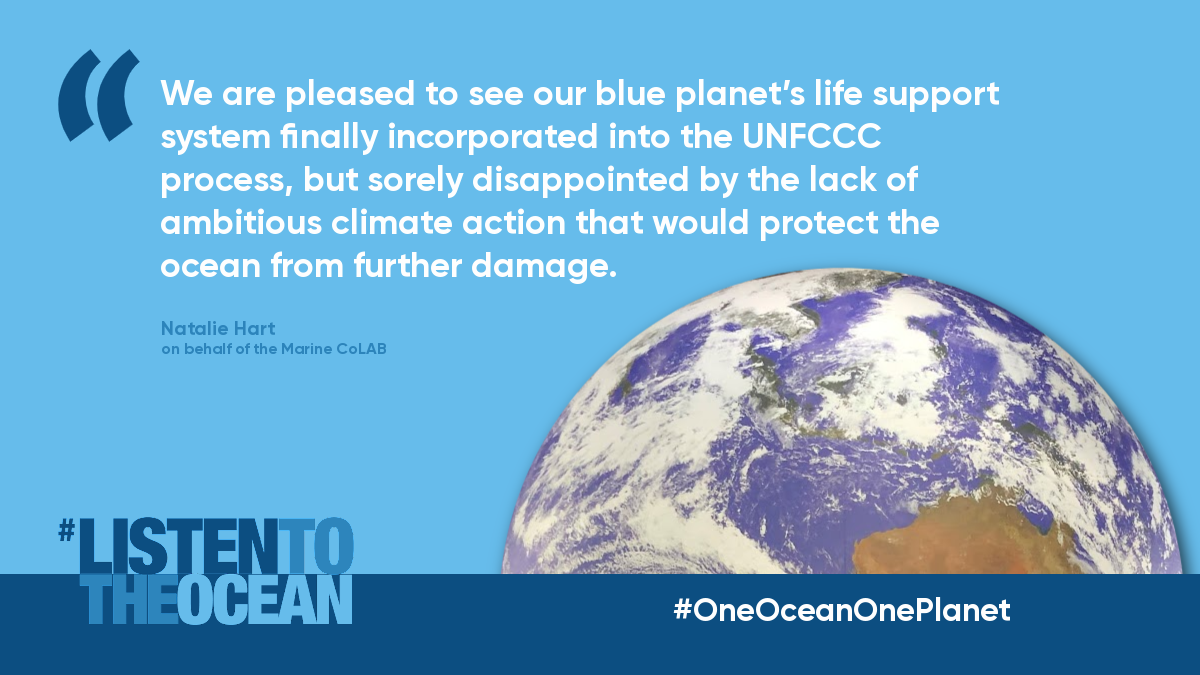Ocean Progress Within the COP Process But in the Face of Greater Loss
GLASGOW: Reacting to the final outcome of the UNFCCC COP26 today, ocean groups from across the world recognised an important process gain for the ocean, but inadequate commitments to tackling climate action.
The new agreement moves the ocean into the workings of the UNFCCC, ensuring that the ocean will play a role in processes related to achieving ambitious mitigation, adaptation and finance goals in the future. This is an important and hard fought for win, but does not alter the lack of near-term, verifiable and ambitious action required to save the ocean and planet from climate change.
The insufficient climate outcomes of COP26, specifically to keep warming to 1.5 degrees, mean pressure on the ocean will continue to increase. Action for ocean protection, including a robust High Seas Treaty, protection of at least 30% of the global ocean by 2030 and a reduction in other current ocean stressors including overfishing, and future threats such as deep sea mining is now even more urgent.
Welcoming the progress:
John Kerry, U.S. Special Presidential Envoy for Climate:
….When the world talks about the climate crisis, the ocean crisis must be front and center in that conversation. One way to ensure that happens will be to establish an ongoing forum for ocean issues here in Glasgow in the COP26 decision text.
Ambassador Waldemar Coutts, Director for Environment & Ocean, Foreign Ministry (MoFA), Chilean Government:
The leadership of the Chilean MoFA was key in the process of promoting the ocean as a relevant carbon sink and climate regulator. We were very pleased to have been able to contribute to an ambitious text decision on the ocean at COP26, working together with other Parties and with the crucial participation of civil society. Integrating the ocean into the UNFCCC process is a necessary step. Ocean action is climate action and one of the keys to solving the climate crisis.
While this may be a step forward for recognizing the impacts of climate change on the ocean and the role ocean-based solutions can play in addressing the crisis, the most important thing we can do for the ocean is to meet the 1.5-degree target of the Paris Agreement. COP26 has not mobilized the ambition needed to protect the ocean and communities who rely on it with regards to emission reduction targets or financing to address the challenges communities are already facing.
Mirella von Lindenfels, Director of the OneOcean Flotilla:
The existential threat to the ocean and humanity has not been addressed. COP26 has not delivered the scale of near-term, verifiable or ambitious actions so desperately needed. The ocean must be embedded in the UNFCCC process, that has now been achieved but we also need our planet to be protected from above 1.5 degree warming, that has not.
Professor Dan Laffoley of the International Programme on the State of the Ocean:
It is heartening to finally see recognition of the ocean’s critical role in climate but the COP26 net zero decision shows the significant work yet to run to bring our world back into balance. It is clearer than ever that protecting the ocean is a no regrets policy that protects all of us and the planet. Accelerated action is now needed by countries to truly protect that blue heart of the planet. Now is the time to determinedly and speedily act, to do just that.

Natalie Hart, on behalf of the Marine CoLAB:
We are pleased to see our blue planet’s life support system finally incorporated into the UNFCCC process, but sorely disappointed by the lack of ambitious climate action that would protect the ocean from further damage. Millions of people across the world depend on the ocean for food, livelihoods, health and wellbeing. Our fight to protect these people, and the planet, just got harder.

The One Ocean Flotilla, representing ocean groups from around the world thanked the State Parties and groupings that fought so hard to insert and then retain ocean language within the final text.
ENDS
NOTES
The text calls for an annual dialogue to strengthen ocean-based action, ensuring that the work to integrate ocean and climate change across the UNFCCC will continue. This means the ocean will play a role in processes related to achieving ambitious mitigation, adaptation and finance goals in the future.
